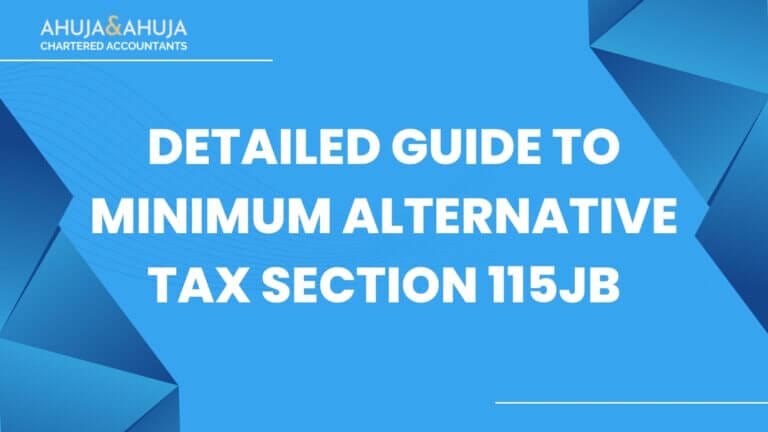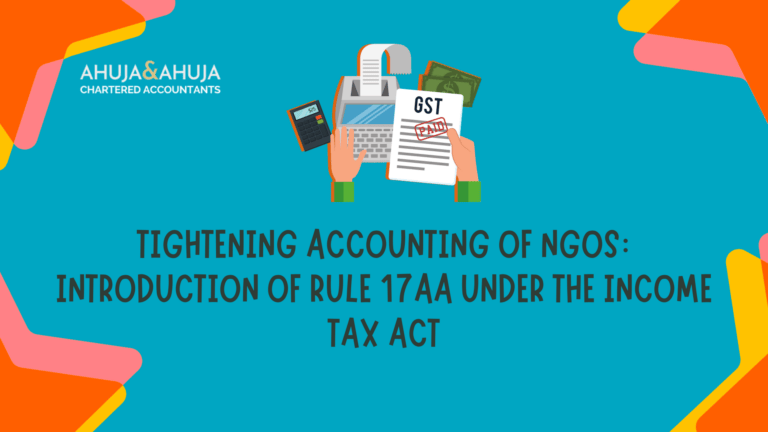Section 263 Income Tax: Revision of Order by Commissioner
Modern tax administration relies not only on the compliance of its taxpayers but also on the robustness and fairness of its assessment processes.
As part of this system, Section 263 of the Income Tax Act, 1961, plays a pivotal role. It allows higher tax authorities, like the Principal Commissioner of Income Tax (PCIT), to revise orders passed by lower tax authorities in order to correct any prejudicial errors.
Thus, Section 263 acts as a crucial safeguard, ensuring the accuracy and fairness of the tax assessments that affect the financial obligations of individuals and corporations alike.
Background: The PCIT vs. Reeta Lakhmani Case
The legal case of PCIT vs. Reeta Lakhmani, adjudicated by the Calcutta High Court, provides an in-depth study of the practical application and implications of Section 263.
This case is a significant reference point because it highlights the need for procedural correctness and the independent application of mind by tax authorities while exercising their powers under this section.
The context of this case involves a dispute over the genuineness and nature of certain transactions by the assessee, Reeta Lakhmani, who was accused of using dubious share transactions to conceal income as Long Term Capital Gains (LTCG), thus claiming exemptions under Section 10(38) of the Income Tax Act.
The primary contention was whether these transactions warranted revision under Section 263 by the PCIT, highlighting the critical balance tax authorities must maintain between oversight and fairness.
As we delve deeper into this case, it becomes apparent how pivotal Section 263 is within the arena of tax legislation. It not only reinforces the authority of tax officials to revisit past decisions but also dictates the manner and rationale behind such revisions, ensuring they are not arbitrary but justified and necessary for maintaining the tax system’s integrity.
In the following sections, we will explore the statutory framework of Section 263, dissect the substantial issues and arguments raised during the PCIT vs. Reeta Lakhmani case, and illustrate the broader implications of the judgments passed.
Such a discussion is indispensable for understanding the functional dynamics of tax laws and how they evolve in response to the ever-changing landscape of economic transactions and legal interpretations.
Understanding Section 263
Definition and Purpose of Section 263
Section 263 of the Income Tax Act, 1961, is designed as a corrective mechanism that allows higher tax authorities to review and possibly amend orders from lower authorities.
The intent is to correct any order considered ‘erroneous’ insofar as it is prejudicial to the interests of the revenue.
This provision ensures that the income tax liability is computed correctly, safeguarding the revenue against losses due to mistakes or oversights in the initial assessments.
Operational Mechanism of Section 263
Under Section 263, the Principal Commissioner or Commissioner has the authority to:
- Call for and examine the records of any proceeding under the Act.
- Conduct inquiries if the order is erroneous in any respect and is prejudicial to the interests of the revenue.
These powers are meant to maintain the system’s integrity by allowing for revisits to assessments that may have missed pertinent details or misinterpreted the laws applicable.
Criteria for Revision under Section 263
An order can only be revised under Section 263 if it meets the following twin conditions:
- Erroneous: The order has mistakes that have led to incorrect or unfair conclusions or decisions.
- Prejudicial to the interest of revenue: The mistake causes a loss to the revenue or an undue benefit to the assessee that is not in line with the law.
These strict criteria ensure that the powers granted under Section 263 are used judiciously, preventing their misuse as a tool for harassment by the tax authorities.
Balancing Oversight and Fairness
The inherent challenge with Section 263 is striking the right balance between ensuring compliance and not overstepping into the domain of unnecessary intervention.
This balance is critical as it affects trust and fairness in the tax system, principles as crucial as the collection of revenue itself.
The Case of PCIT vs. Reeta Lakhmani
Overview of the Case
The case of PCIT vs. Reeta Lakhmani emerged as a significant legal battle focusing on the interpretation and application of Section 263 of the Income Tax Act.
This disputed involved the assessment of Long Term Capital Gains (LTCG) which the assessee, Ms. Lakhmani, claimed were exempt under the Act.
The main issue was whether the transactions, which had been initially passed without substantial scrutiny, were in fact lawful and qualified for the LTCG exemption.
Key Arguments
- Genuineness of Transactions: The revenue contested that Ms. Lakhmani failed to establish the genuineness of the transactions involving shares, which they suggested were merely a guise to convert undisclosed income into exempt income. This link between undisclosed profits and tax exemptions highlights case nuances similar to those discussed under Section 54F.
- Nature of Transactions: It was argued whether the transactions were an adventure in the nature of trade, which would classify the gains as business income, not capital gains. The classification of income influences the applicable taxes and exemptions, affecting both the assessee and the revenue.
Tribunal and High Court Findings
- Procedural Lapses: The tribunal found that the PCIT had depended on the assessment officer’s proposal without applying an independent judgment, which is crucial under Section 263. This procedural requirement ensures decisions are made impartially and based on solid evidence rather than reliance on subordinate recommendations.
- Judgment Outcome: Ultimately, the High Court sided with the Tribunal’s decision to set aside the PCIT’s revision order, reaffirming the need for procedural correctness and the independent evaluation of evidence by the PCIT.
This ruling not only clarifies the standards for the application of Section 263 but also ensures that tax authorities perform their duties without overstepping their boundaries, thus protecting taxpayer rights while maintaining the integrity of the tax assessment process.
Implications of the Judgment
- The judgment serves as a pivotal reference for similar cases, stressing the importance of meticulous procedures and evidence evaluation.
- It reinforces the necessity for tax authorities to substantiate their claims robustly and follow due process before invoking Section 263.
Conclusion and Implications
Recap of Case Insights
The PCIT vs. Reeta Lakhmani case sheds light on the meticulous standards required in the application of Section 263 of the Income Tax Act.
The judgment underscores the importance of independent thought and careful procedural follow-through when tax authorities exercise their revisionary powers.
Such thoroughness is crucial not only to uphold the law but also to ensure fairness in tax administration.
Broader Implications for Tax Administration
- Standard for Future Cases: This case sets a procedural benchmark for tax authorities, emphasizing the necessity of independent validation of evidence before making revisions under Section 263.
- Prevention of Arbitrary Revisions: By highlighting the requirements for substantial and procedural correctness, the judgment acts as a deterrent against arbitrary and unfounded revisions, thus protecting taxpayers from undue harassment.
- Enhancing Trust in the Tax System: Fair application of tax laws enhances taxpayer trust and compliance, essential for the effective functioning of any tax system.
FAQs Consolidated from the Case
What is Section 263 of the Income Tax Act?
It provides tax authorities the power to revise any order perceived as erroneous and prejudicial to the interests of revenue, ensuring the accuracy and fairness of tax assessments.
Why is independent verification crucial in the application of Section 263?
Independent verification ensures that revisions are based on solid evidence and lawful considerations, not merely on subjective judgments or external influence.
How does the PCIT vs. Reeta Lakhmani case affect other tax assessment cases?
The case sets a precedent emphasizing the need for procedural correctness and thorough evidence evaluation, guiding future cases involving similar revisions under Section 263.
Can outcomes of such cases reduce potential litigation in the future?
Yes, clear guidelines and precedents can help reduce ambiguities and disputes over tax assessments, potentially decreasing litigation over similar issues.
Final Thoughts
The case of PCIT vs. Reeta Lakhmani is a cornerstone in the annals of tax law, particularly concerning Section 263. It beautifully illustrates the delicate balance tax authorities must maintain between assertive oversight and ensuring fairness.
As tax laws and economic scenarios evolve, the principles extracted from such landmark cases will continue to guide both tax authorities and taxpayers, fostering a more compliant and equitable tax environment.
This analysis of Section 263 through the lens of a pivotal legal battle underscores the continued need for an adaptive, informed, and just tax administration system—an invaluable takeaway for anyone engaged in the fields of law, taxation, and finance.
Further insights into capital gains tax exemptions can be found here, which provides additional context to the concepts discussed in relation to tax assessment challenges and revisions.
Disclaimer
The materials provided herein are solely for educational and informational purposes. No attorney/professional-client relationship is created when you access or use the site or the materials. The information presented on this site does not constitute legal or professional advice and should not be relied upon for such purposes or used as a substitute for professional or legal advice.






